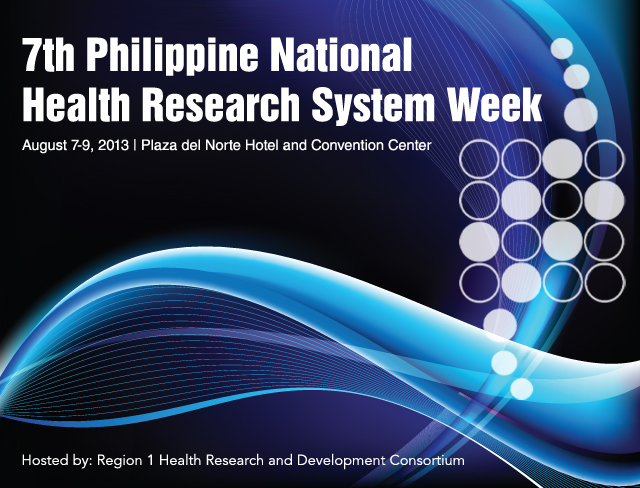The Philippine Association of Medical Journal Editors (PAMJE), in cooperation with the Philippine Council for Health Research and Development of the Department of Science and Technology (PCHRD-DOST), calling all designers, graphic artists, students, and professionals to a logo design contest.
PAMJE, a non-governmental organization that strives to raise the quality of medical and health-related journal publishing in the Philippines, is in need of a visual identity, a logo design that would represent and embody the organization.
Organization’s objectives are as follows:
1. encourage collaboration and facilitate communication among medical and health journal editors in the Philippines and the Asia Pacific Region;
2. improve editorial standards and promote professionalism in medical editing through education, self-assessment, and self-governance;
3. facilitate scholarly research writing and peer-review processes through training workshops, seminars and other activities; and
4. foster the continuing education of medical and health journal editors, reviewers, editorial staff, publishers and librarians in the country.
Logo Contest Guidelines:
- The contest is open to all interested parties except to employees of DOST-PCHRD and PAMJE members.
- The logo design must correspond to the PAMJE’s Mission and Objectives.
- Designs must be in JPEG and PSD format with 300 dpi or higher.
- Criteria for judging the logo design includes:
- Uniqueness and Content. A new design that will speak about the organization’s mission.
- Scalability – readability and impact from small and large logo reproduction
- Adaptability for all media use.
- Overall Design. Quality of logo and overall impact.
- The organizer has exclusive ownership, copyright, and control over the use of the original winning design in all forms and formats. The organizers may reproduce in any format; all or any portion of the design, and distribute any reproductions of the logo design.
- Contest winner will receive a cash prize of P10, 000.
- The winning artist will be notified by phone call and email.
- Deadline for submission of entries is until March 28, 2014.
- Entries must be submitted via mail c/o Meychell S. Angoy, PCHRD-DOST, 3F DOST Main Bldg., Gen. Santos Ave., Bicutan, Taguig City or sent through email at This email address is being protected from spambots. You need JavaScript enabled to view it./ This email address is being protected from spambots. You need JavaScript enabled to view it..

7th PNHRS Week
On August 7-9, 2013, the 7th Philippine National Health Research System (PNHRS) Week will be held at the Plaza del Norte Hotel and Convention Center, Laoag City, Ilocos Norte with the theme “People at the Center of Health and Health Research.”
Hosted by the Region 1 Health Research and Development Consortium, the PNHRS Week celebration will provide a platform for the different stakeholders in health R&D to interact, to learn from each other, to share information and experiences, to voice their concerns, to contribute research-based solutions to health problems, among other things.
Expected to grace the three-day celebration were Provincial Governor Maria Imelda Josefa R. Marcos, Secretary Mario G. Montejo of the Department of Science and Technology (DOST) and Secretary Enrique T. Ona of the Department of Health (DOH).
Around 500 participants from all the 17 regional health research consortia are expected to participate in the event. For more information, please contact PNHRS secretariat at telephone numbers: (02) 8377534 or (02) 8377537 or visit PNHRS website at http://www.healthresearch.ph/.
PNHRS Week is held annually on the second week of August by virtue of Presidential Proclamation No. 1309 signed in 2007.


